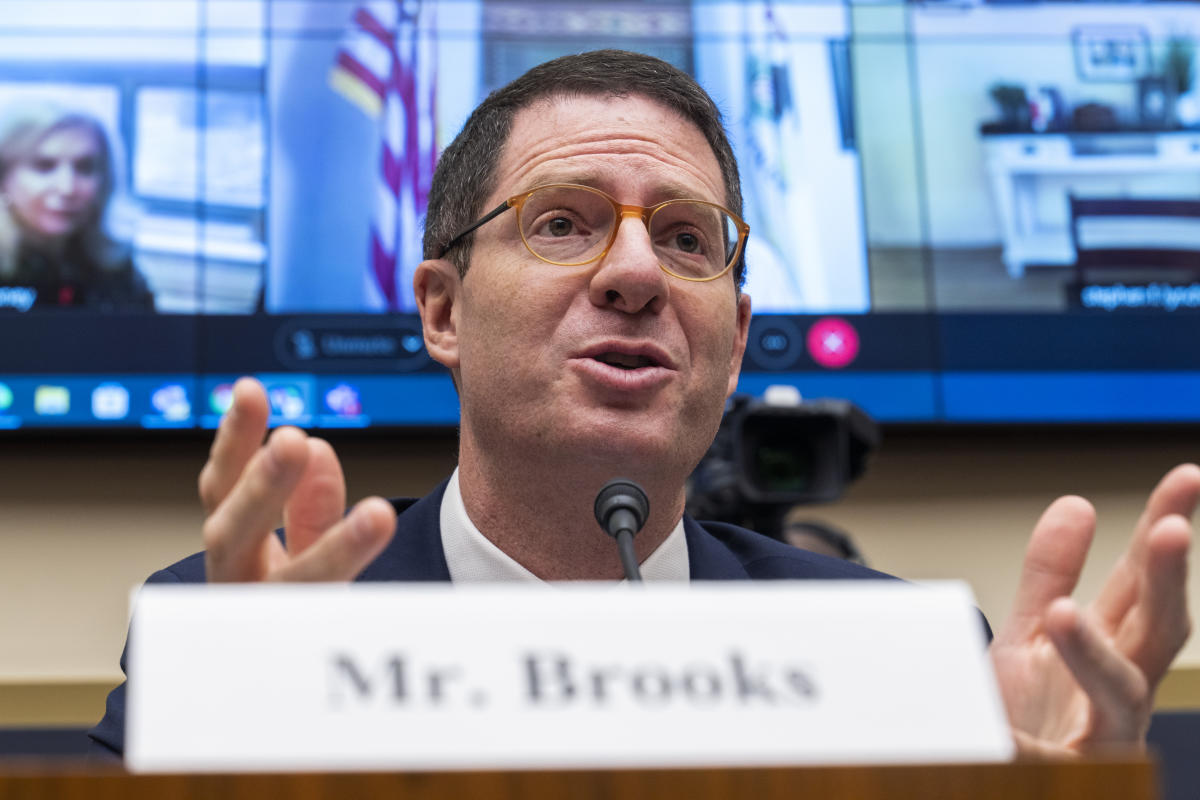The chief executives of six major cryptocurrency companies made their Washington debut on Wednesday, broadly embracing regulation amid explosive growth in digital currencies — even as they pushed back against the idea that old securities laws will work in the emerging space.
Testifying before the House Financial Services Committee for nearly five hours, executives from Coinbase, Circle, FTX, Bitfury, Paxos, and Stellar Development Foundation fielded questions from lawmakers on understanding the crypto space, ransomware, how to protect investors against losses and fraud, and providing services for the unbanked.
Amid polite but skeptical questioning, many of the executives voiced support for a new regulatory framework, rather than using existing banking laws to regulate the crypto space. Their appearance in Congress comes as regulators and lawmakers look to craft new rules for digital assets.
“The solution is not to shoehorn digital asset operations into a regulatory system designed for earlier generations of financial assets,” Paxos CEO Charles Cascarilla told lawmakers.
Cascarilla also suggested if policy makers gave non-bank crypto platforms direct access to the Federal Reserve, like the Bank of England does to non-bank payment service providers, it would open up the sector to more consumers, and lower costs by cutting out financial middle men.
Brian Brooks, former Comptroller of the Currency under former President Donald Trump who now serves as CEO of Bitcoin mining firm Bitfury Group, questioned what he called hypocrisy within the regulatory system.
“Is it consistent to take the position that only banks should be allowed to issue stablecoins, but then fail to grant bank charters to the largest issuers of stablecoins?” Brooks pointed out.
“Does it make sense to bring enforcement actions challenging certain crypto assets as unregistered securities, but then fail to allow those assets to be registered and trade on a national securities exchange?” he asked.
‘Too big to ignore’
Brooks also said a new regulatory needn’t be created. He suggested if there was a crypto lending product it should fall under the purview of the Federal Deposit Insurance Corp. (FDIC), while if it were a crypto security product it would fall under oversight of the Securities and Exchange Commission (SEC) and the Commodities and Futures Trading Commission (CFTC).
“Crypto is just a step function improvement in the system,” he added.
Coinbase CFO Alesia Haas argued that blockchain technology does not constitute securities, but a new form of digital property, or new way to record ownership. She noted the industry needs clarity and would benefit from a definition all could agree upon.
Meanwhile, Jeremy Allaire, CEO of stablecoin issuer Circle said there’s a lot of work to do to define reserve, liquidity, and capital requirements for global-scale stablecoin issuers.
“Stablecoins and internet-native capital markets are not too big to fail, but they are now too big to ignore,” Allaire stated.
For their part, Lawmakers pressed the executives on what protections customers have. Coinbase’s Haas noted that her exchange bifurcates assets into so-called “hot wallets” – crypto stored online — and “cold storage” – crypto stored offline.
She says Coinbaese holds less than 2% of assets are in hot wallets, which are more vulnerable to hacks. She agreed that customers could benefit from uniformed protections if customers lose funds.
There was also discussion about maintaining the dollar as the global reserve currency – a widening concern as digital coins surge in popularity and use – and how crypto could impact this.
Allaire said the question is will the U.S. support digital dollars as a form of stablecoins, which he believes will help America be the top competitor in the sector. Calling it a national economic and security priority, he said that “if this is the new economic infrastructure of the Internet then we want the dollar to play a strategic role.”
He said partnering with private companies becomes a way to compete against states nationalizing that structure and operating in surveillance mode. He noted that digital assets are already helping America compete globally, and therefore a central bank digital currency isn’t required.
“The United States, and the U.S. dollar, [are] winning the digital currency space race, today. Dollar stablecoins are doing trillions of dollars of transactions, the experimental beta of the Chinese Yen is only doing ten billion dollars of transactions,” the executive said.
The question remains what will lawmakers do with this new information and how could they craft new rules. Judging by Wednesday’s hearing, there was little immediate resolution about how urgently policymakers will act, if at all.
“It is hard to see how this hearing creates momentum for legislation. The hearing did not create pressure on Congress to act immediately, Cowen analyst Jaret Seiberg said.
However, “the SEC remains likely to proceed with more enforcement and regulation. Nothing at the hearing would pressure the SEC to delay action.”
Still, market participants are eager to get some indication about policymakers’ intentions. CoinDesk director Jodie Gunzberg told Yahoo Finance live that “it would be in the best interests of the United States if they could accelerate the learning curve and start to put in place some regulations, [serving] as the guide rail so that industry could develop more here.”
Read the latest financial and business news from Yahoo Finance
Read the latest cryptocurrency and bitcoin news from Yahoo Finance
Follow Yahoo Finance on Twitter, Instagram, YouTube, Facebook, Flipboard, and LinkedIn
